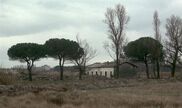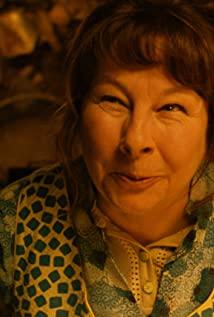The opening shot moves very slowly through the desolate fields of a French winter. The silhouettes of two trees at the top of the mountain are clearly visible. There is no joy here. As the camera approaches, we see the frozen body of a young woman at the bottom of the ditch. Workers in the field found her and cried out for help. Soon the authorities came to the scene with their clipboards, recording the known things like the body's height, weight, eye color, and thinking about all the unknowable things like her name and how she died in the ditch. Then we hear the voice of Agnès Varda, who tells us that she was drawn to the mystery of the young stranger's final months on earth and sought the testimony of those who knew her. But "The End of the World" is about an unknowable woman. While there are plenty of people who can come forward and say they talked to the young woman, provided her with shelter, gave her food and water, shared cigarettes and even slept with her, no one would say they knew her. "The End of the World" tries to feel like a documentary, with a series of flashbacks showing certain days in the last few months of the girl's life. In fact, it's all fictional. Like all good feature films, it's able to suggest more than it knows. From bits and pieces of information spread by the girl, we learn that she came from a middle-class family, she was trained as a secretary, she hated working in an office, and finally she hit the road, carrying her belongings and tent, begging for food and shelter, and sometimes Take a small job and earn some money. She was plain looking, with a wide, flattering face and a calm smile. People talk about how stinky she is, but we never know. She rolls her own cigarettes and sometimes prefers cigarettes to food. Sometimes when she got a few francs in a café, she would spend the money on the jukebox instead of the bread. It was only gradually that we realized that she was extremely negative. When a shepherd and his wife took her in, giving her food and a small motorhome for the winter, she didn't accept the opportunity to help them work. She sat in the motorhome with her eyes straight. She didn't pursue it at all. She went on the road not to get rich, but to give up all her efforts completely. We have trouble reading her mind. Sometimes she looked content, opening the tent curtain and staring at the bright morning sun with her eyes half-open. She spent a few days at the country house, laughing with the elderly countess as they got drunk with brandy. She seemed to have a brief reaction to a female professor of agronomy who drove her to inspect the trees for the plague. But does she really have a crush on these people or is she just providing them with a mirror of their own needs ? The most harrowing nuance of the film is that we see the girl eventually go down. Day after day, almost without warning, she was getting closer and closer to death. The life of the homeless becomes the life of the outcast, and the outcast becomes the outcast. In the end, the outcast becomes an animal, disheveled, lost, and slumped to the bottom, unable to even maintain the appearance of a wanderer. In the end, she seemed confused, frightened, and surprised by how far she had fallen. At the end she cried, and we recalled how young and helpless she was under the strong exterior. Like many great films, it tells a very unique story, strong and earthy, about a very special person. Because it's her own story, and it doesn't seem to symbolize anything - because the director has no metaphors, only information - only after a few days will we ponder that the story of this wanderer can also be the story of our lives: although We have spent time with many people, but how many people really know us?
View more about Vagabond reviews










